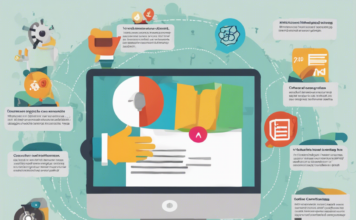Humans are complex beings, governed by a plethora of emotions, thoughts, and behavior patterns. Our actions are often shaped by a myriad of factors, including our upbringing, experiences, and social environment. To navigate the intricacies of human nature, it is essential to delve deep into the laws of human nature that govern our actions and decisions.
The Dichotomy of Human Nature
At the core of human nature lies a constant battle between our rational and emotional selves. Rationality dictates that we make decisions based on logic and reason, weighing the pros and cons of each choice. On the other hand, emotions often cloud our judgment, leading us to make impulsive decisions based on our feelings at that moment.
The Power of Self-Awareness
One of the fundamental laws of human nature is the importance of self-awareness. Understanding our strengths, weaknesses, and motivations allows us to navigate social interactions more effectively. By being self-aware, we can identify our biases, triggers, and behavioral patterns, thereby enabling us to make conscious choices rather than reacting impulsively.
The Influence of Environment
Our environment plays a significant role in shaping our behavior. From our family and friends to the media and culture we consume, external influences can impact the way we think and act. By recognizing the influence of our environment, we can become more mindful of the external factors that shape our behavior, allowing us to make more informed decisions.
The Psychology of Power Dynamics
Power dynamics are an inherent aspect of human relationships, influencing how we interact with others and assert our dominance or submission. Understanding the nuances of power can help us navigate social hierarchies more effectively and avoid being manipulated or taken advantage of by others. By studying power dynamics, we can cultivate healthier and more balanced relationships with those around us.
The Role of Empathy in Human Connections
Empathy is the ability to understand and share the feelings of others, playing a crucial role in fostering meaningful connections and relationships. By practicing empathy, we can enhance our emotional intelligence and build stronger bonds with those around us. Empathetic individuals are better equipped to navigate conflicts, resolve disputes, and offer support to others in times of need.
Overcoming Cognitive Biases
Cognitive biases are inherent shortcuts in our thinking that can lead to errors in judgment and decision-making. By understanding common cognitive biases such as confirmation bias, availability heuristic, and anchoring bias, we can learn to recognize when our thinking is being influenced by these biases. Overcoming cognitive biases allows us to make more rational and objective decisions, free from the constraints of our inherent mental shortcuts.
The Art of Persuasion and Influence
Persuasion is a powerful tool that can be used to influence the thoughts and behaviors of others. By understanding the principles of persuasion, such as reciprocity, scarcity, and social proof, we can become more effective communicators and influencers. Whether in personal relationships or professional settings, mastering the art of persuasion can help us achieve our goals and sway others to our way of thinking.
FAQs (Frequently Asked Questions)
-
What are some common behavioral patterns that govern human nature?
Common behavioral patterns include confirmation bias, social conformity, cognitive dissonance, and the halo effect. -
How can self-awareness help improve interpersonal relationships?
Self-awareness allows us to recognize our triggers, biases, and emotional responses, enabling us to communicate more effectively and empathize with others. -
Why is it essential to understand power dynamics in social interactions?
Understanding power dynamics helps us navigate relationships more effectively, assert our boundaries, and avoid being manipulated or taken advantage of by others. -
How can empathy enhance our emotional intelligence?
Empathy enables us to understand the emotions and perspectives of others, fostering stronger connections, resolving conflicts, and offering support in times of need. -
What are some practical strategies for overcoming cognitive biases?
Practical strategies include seeking diverse perspectives, challenging your assumptions, and taking time to reflect on your decisions before acting.
In conclusion, by exploring the laws of human nature that govern our behavior, we can gain valuable insights into our own actions and the motivations of those around us. Through self-awareness, empathy, and an understanding of power dynamics, we can navigate social interactions more effectively and cultivate meaningful relationships based on mutual respect and understanding.





